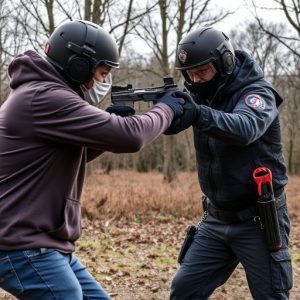State Laws on Taser Ownership: A Guide to Buying Stun Guns Safely
Understanding state laws is vital before considering civilian taser ownership, as regulations vary s…….
Understanding state laws is vital before considering civilian taser ownership, as regulations vary significantly across US states. Researching specific legal requirements, including permits, age restrictions, waiting periods, and restricted areas, ensures compliance. Key aspects involve meeting age criteria (18-21), completing self-defense courses, passing background checks, adhering to voltage limits, and prioritizing safety features. Reputable sellers follow strict federal and state laws, implementing robust background check procedures for responsible citizens seeking self-defense tools. Navigating local permit requirements and legal carrying locations is crucial for avoiding legal issues and making informed decisions when purchasing stun guns.
“In today’s world, civilian taser ownership is a topic of growing interest. Understanding state laws regulating Taser possession is crucial before making an informed decision. This comprehensive guide delves into the legal requirements, age restrictions, and background checks needed to purchase a stun gun. We explore permits, licenses, public carrying regulations, and offer tips on what to look for when buying stun guns, ensuring you stay within legal boundaries.”
- Understanding State Laws Regulating Taser Ownership
- Legal Requirements for Purchasing a Stun Gun
- Age Restrictions and Background Checks
- Permits and Licenses: What You Need to Know
- Restrictions on Carrying and Using Tasers in Public
- What to Look for When Buying Stun Guns: A Comprehensive Guide
Understanding State Laws Regulating Taser Ownership
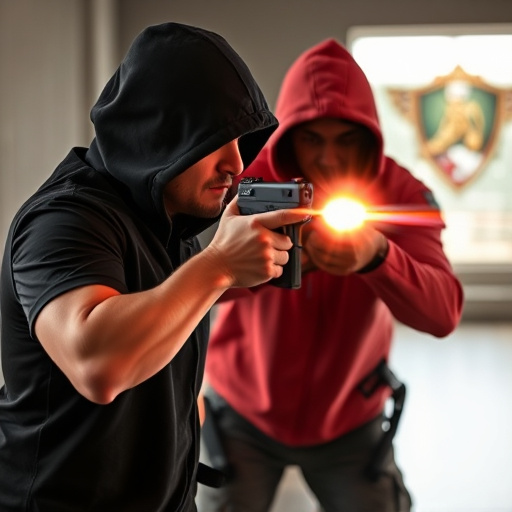
When considering civilian taser ownership, it’s crucial to understand that state laws play a pivotal role in regulating the purchase and possession of these devices. Each US state has its own set of rules and regulations regarding stun guns, which can significantly impact what individuals are allowed to buy and where they can use them. Therefore, “what to look for when buying stun guns” goes beyond just identifying the device’s features; it involves researching specific state laws governing taser ownership.
Understanding these laws is essential for ensuring compliance and avoiding legal repercussions. Key aspects to consider include permit requirements, age restrictions, waiting periods, and restricted areas where stun guns may not be carried or used legally. Some states allow open carry with a permit, while others restrict taser possession to specific situations like self-defense within one’s residence. Staying informed about these regulations is the first step in responsible civilian taser ownership.
Legal Requirements for Purchasing a Stun Gun
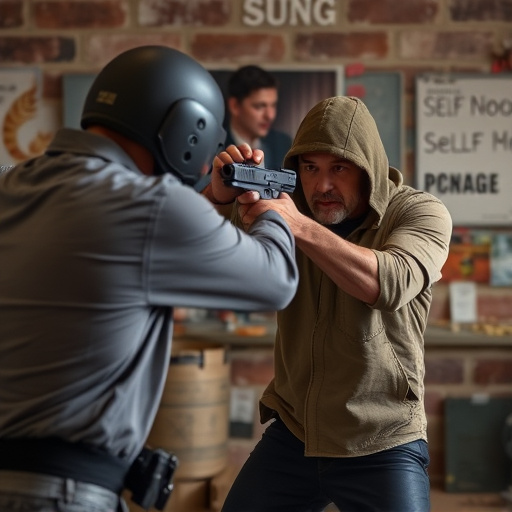
When considering the legal purchase of a stun gun, it’s crucial to understand the specific requirements set by your state laws. Different jurisdictions have varying regulations regarding civilian ownership, making it essential to research and comply with local rules before making a purchase. One key aspect is ensuring that you meet the minimum age requirement, which typically ranges from 18 to 21 years old, depending on the state. Additionally, some states demand proof of completion of a certified self-defense or safety course as a condition for ownership.
Several states also mandate a background check through local law enforcement or specialized agencies. This step is often necessary for both initial purchase and subsequent renewals or transfers of ownership. What to look for when buying stun guns includes verifying that the device complies with state laws regarding voltage, energy output, and any specific safety features required. It’s recommended to consult official government resources or local law enforcement agencies for up-to-date information on civilian stun gun ownership requirements in your area.
Age Restrictions and Background Checks
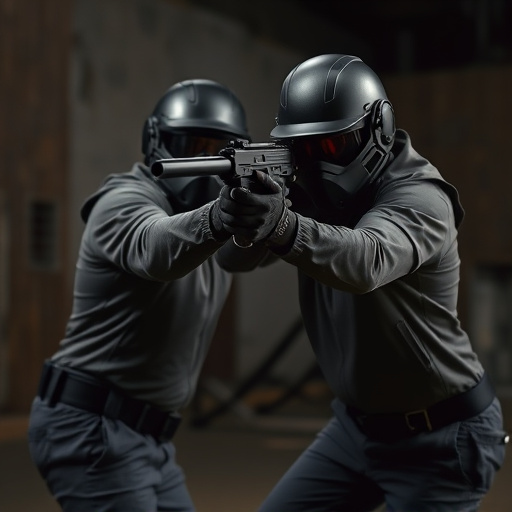
When considering civilian Taser ownership, age restrictions and comprehensive background checks are two critical aspects to understand. Many states have established minimum age requirements for purchasing stun guns, often setting it at 18 years old. This is a significant step to ensure responsible use, as younger individuals might not possess the maturity and judgment needed to handle such a powerful tool safely.
Background checks serve as another vital layer of protection. These checks help prevent individuals with a history of violence, criminal records, or mental health issues from acquiring Tasers. When buying stun guns, what to look for includes strict adherence to these regulations, ensuring both federal and state laws are followed. Reputable sellers will implement robust background check procedures, making it easier for law-abiding citizens to access these self-defense tools responsibly.
Permits and Licenses: What You Need to Know
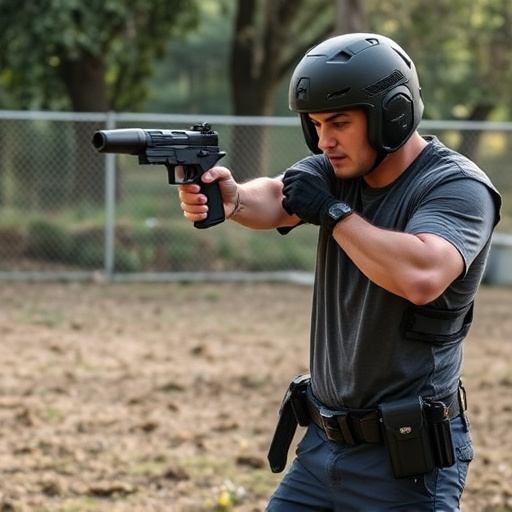
When considering civilian taser ownership, understanding the permit and license requirements is a crucial step in the process. What to look for when buying stun guns involves more than just choosing the right device; it entails navigating the legal landscape of your state or region. Each jurisdiction has its own set of rules and regulations regarding non-lethal force tools like tasers, so prospective buyers must stay informed about local laws.
Permits typically involve background checks, waiting periods, and potential training or safety courses. Some states may also mandate specific types of tasers and require registration or reporting of ownership. Before making a purchase, research what to expect in terms of documentation and ensure you meet all necessary criteria. This proactive approach will guarantee a legal and responsible stun gun acquisition process.
Restrictions on Carrying and Using Tasers in Public
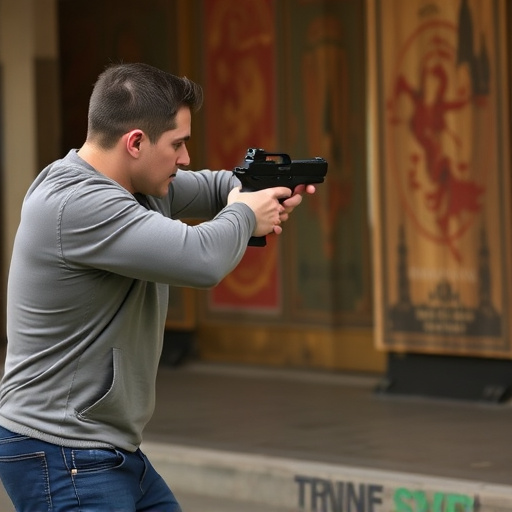
When considering civilian taser ownership, it’s crucial to understand the restrictions and legal implications that come with carrying and using such devices in public spaces. Each state has its own set of regulations dictating where and how stun guns can be possessed and employed. Many states prohibit the open carry of tasers, requiring them to be stored in a concealed manner, similar to firearms. Additionally, there are specific areas where taser usage is restricted or outright banned, such as schools, government buildings, and certain public venues.
When purchasing a taser, prospective buyers should carefully review their state’s laws regarding stun guns. Key aspects to look for include permit requirements, if any, and the range of legal locations where tasers can be carried and used. Understanding these regulations is essential to ensure compliance with local laws, avoid legal repercussions, and make informed decisions when buying stun guns.
What to Look for When Buying Stun Guns: A Comprehensive Guide
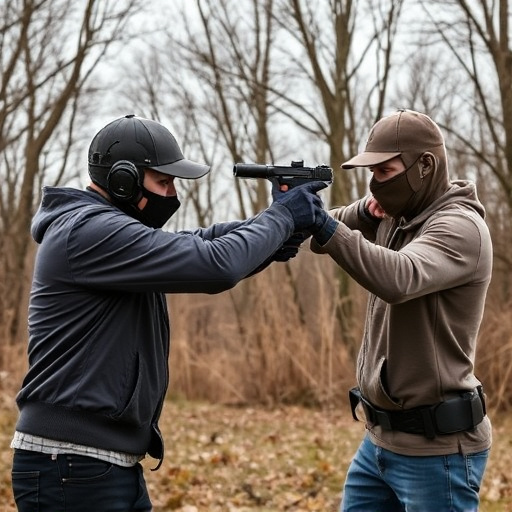
When considering purchasing a stun gun, there are several key factors to examine to ensure you make an informed decision. What to look for when buying stun guns involves understanding both the device’s technical specifications and your personal needs. Firstly, assess the stun gun’s voltage range; higher voltages offer more powerful shocks but also increase safety risks. Look for devices with a safe operating voltage between 50,000 and 150,000 volts.
Next, consider the stun gun’s energy output measured in joules. A higher joule rating indicates greater force behind the shock, which can be crucial for neutralizing an attacker. However, always opt for a device within legal limits, as exceeding these may result in severe consequences. Additionally, check for features like a safety switch, easy-to-grab design, and a durable build to ensure user safety and reliability during emergencies.
When considering civilian taser ownership, it’s crucial to understand and adhere to state laws and regulations. From legal requirements and age restrictions to permits and public carrying rules, each state has its own set of guidelines. By thoroughly researching what to look for when buying stun guns, including understanding these regulations, you can ensure compliance and make an informed decision that best suits your needs while prioritizing safety.

